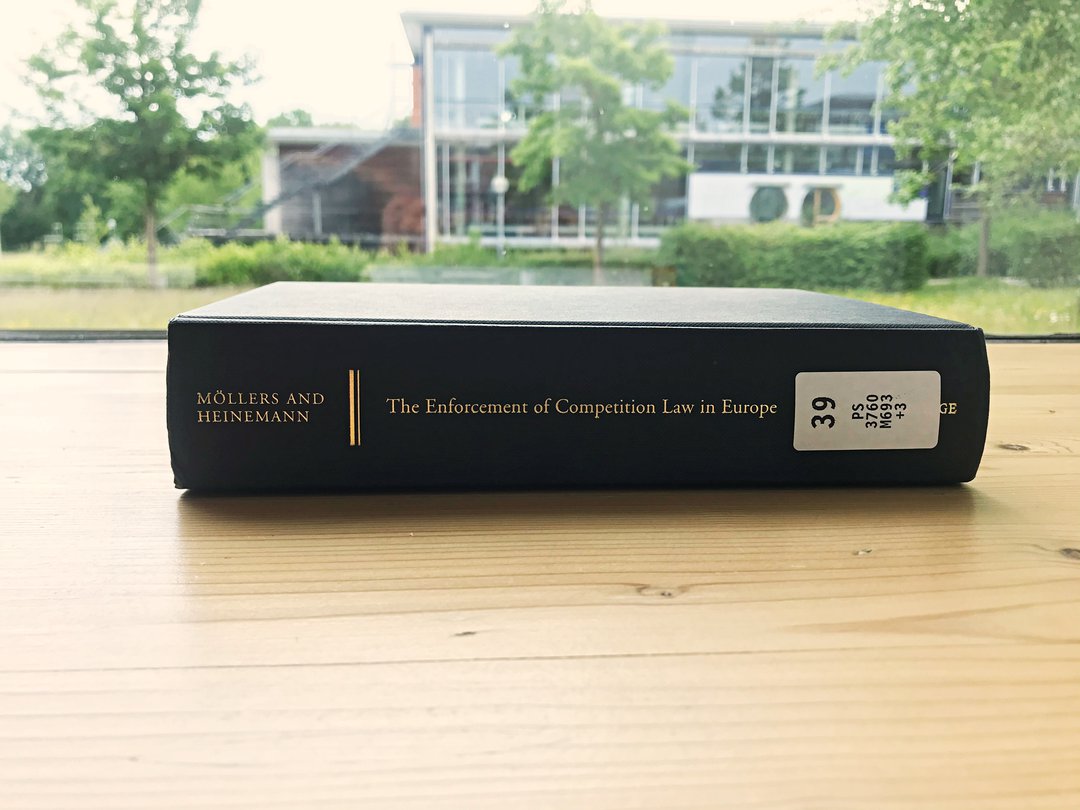Summary

Legal Methods
Legal decisions are accepted if they are well-reasoned. This work provides lawyers with more than 100 legal interpretation figures that are used by lawyers worldwide to justify their legal decisions. German law is exemplary for the technique of Legal Interpretation and Legal Construction, which is applied in Europe and all over the world. The new publication puts lawyers in a position, to develop - step by step - a solution for a hitherto unsolved legal problem in such a way that it convinces the opposing party of the content his/her solution (...)
XLIV, 585 p. Hardcover (Linen), C.H.BECK. ISBN 978-3-406-74397-9

The Enforcement of Competition Law in Europe
In the debate on the enforcement of competition law, many take the view that Europe should avoid the traps US law has fallen into by admitting excessive litigation. European law should not pave the way for judicial proceedings which ultimately serve the interests of lawyers or other agents rather than injured parties. This inquiry describes the state of remedies in competition law in fifteen European countries, analyses the underlying determinants, and proposes ways of improving the enforcement of competition law. The International and European legal frameworks are presented, as is the approach of US-American law. (...)
by Thomas M. J. Möllers/Andreas Heinemann, First Edition (Cambridge University Press - Cambridge), 2007/2009, ISBN 978-0-511-49503-8

Market Manipulation Through Short Selling Attacks and Misleading Financial Analyses
These days Germany's listed companies have a high risk to become victims of short selling attacks by misleading financial analyses. Companies and supervision have so far had little to counter that. The article deals with deficits in the area of standardisation and enforcement of law and approaches solutions. It has been published in "The International Lawyer", a triannual publication of the American Bar Association's Section of International Law in cooperation with SMU Dedman School of Law, Dallas, Texas.
in: The International Lawyer 2020, p. 91 - 126

European Legislative Practice 2.0: Dynamic Harmonisation of Capital Markets Law — MiFID II and PRIIP
European and national capital markets law is fast-paced and now being structured by Lamfalussy and de Larosière Processes to three relevant legal European levels and three relevant national levels. This double complexity is extended by four special features that result from the relationship between European and national laws: the problem of minimum and maximum harmonisation; national legislatures pressing ahead with passing laws; the relationship between directives and directly applicable regulations; and the influence of European law on non-harmonised areas of law. Based on recent legislation (MiFID II and PRIIP) these four theoretical legal questions are discussed in the context of three general principles of capital markets law: information requirements, dealing with conflicts of interest and questions concerning enforcement of the law.
in: 31 B.F.L.R. 2015, p.141 – 176

The takeover battle Volkswagen/Porsche: the Piëch-Porsche clan–family clan acquires a majority holding in Volkswagen
Apparently, Porsche planned to take over Volkswagen (VW) — in fact, Volkswagen took over Porsche. What appeared to be a takeover, was in fact a battle for influence of the families Piëch and Porsche over Volkswagen, the biggest German enterprise. While the High Court’s decision is still pending, the takeover evolves into a thriller with a range, thus far unknown to German economic history after World War II, costing investors almost €10 billion. In spite of initial hesitation, Stuttgart’s Regional Court will initiate criminal proceedings within the next month. Evidence suggests that Porsche has planned to take over 75 per cent of VW-shares as early as 2005 which, if found to be true, would constitute an information-based market manipulation. Civil claims for damages have failed thus far. However, the chances of success will increase at the next instance.
in: 10 CMLJ 2015, p.410 – 43

Regulation and Liability of Credit Rating Agencies - A More Efficient European Law?
Credit rating agencies are said to be among those who caused the financial crisis. Both the United States and Europe have passed numerous laws intended to monitor them more closely. It stands undisputed, however, that these regulations do not suffice to solve the problems that evolved in the financial crisis. This article evaluates the European Commission’s latest Credit Rating Agencies Regulation, which introduces, among others, two mandatory rating, sets a time limit on the contractual relationship between Rating Agency and the contracting entity and a civil liability regime.
ECFR 2014, p. 333 - 363
